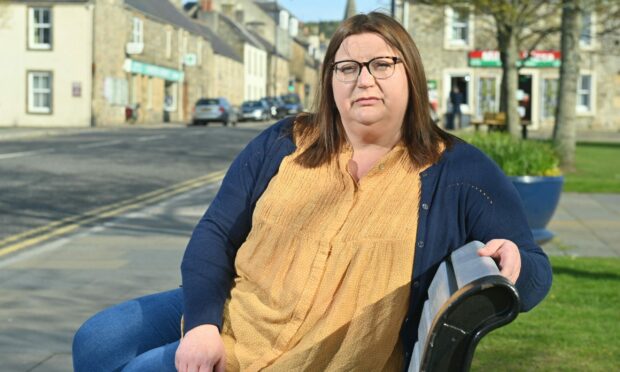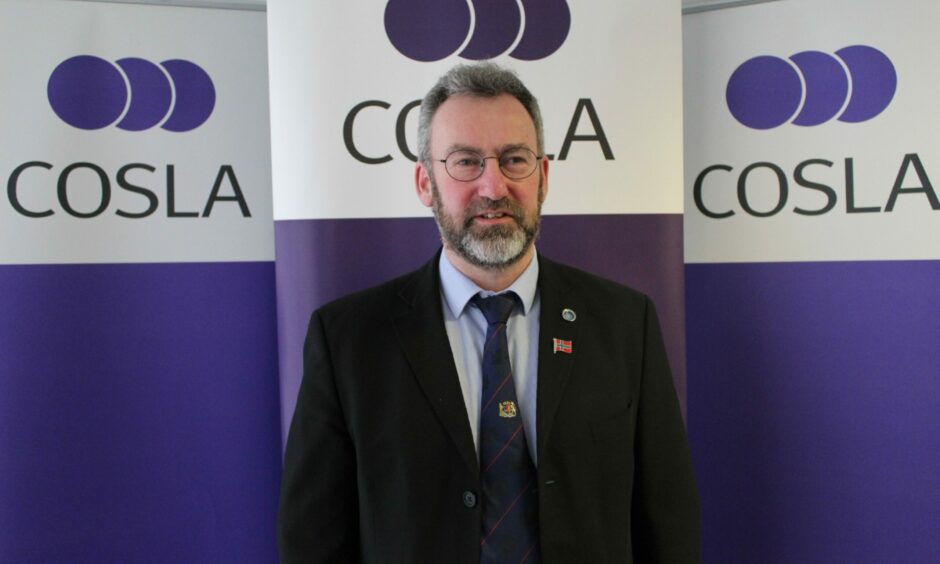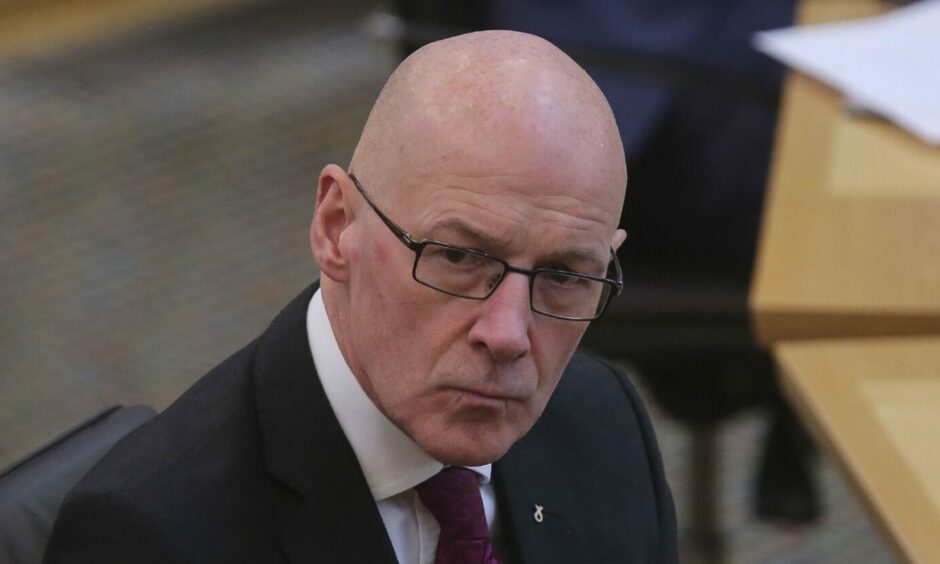Job losses in councils are “inevitable” and services will be cut unless extra cash can be found to meet a £1 billion shortfall, local authority leaders have warned.
Cosla, which represents Scotland’s councils, fears without additional cash from the Scottish Government, authorities will be “struggling to deliver even the basic, essential services that communities rely on”.
Across the north and north-east councils have warned of looming cuts to come in future years with wage bills and services expected to be slashed.
This year, Highland Council projects a budget overspend of more than £9 million, Aberdeen City Council expects £134 million will need to be cut from the books by 2027 and Moray Council has already had to axe school crossing patrollers and reduce bin collections to balance the books.
And Audit Scotland warned Shetland Islands Council needed to accelerate savings to plug a budget gap of up to £142 million over the next five years.
‘Inevitable job losses’
Cosla president Shona Morrison, who is a former Moray Council convener and continues to represent the Fochabers Lhanbryde ward, warned current government spending plans could see council services “either significantly reduced, cut, or stopped altogether”.
She was speaking as the organisation, which represents Scotland’s 32 local authorities, issued an “SOS call” to “save our services”.
The £1 billion shortfall council leaders say they are facing is equivalent to local authorities’ entire budget for early learning and childcare, or total net revenue spending on roads, transport, sport and culture combined.
It would also pay for about 17,500 teachers – around 30% of the current total – Cosla said.
With 70% of council cash used on staffing, Ms Morrison said it is “inevitable that current spending plans will lead to job losses”.
Deputy First Minister John Swinney will reveal how much funding councils will get in 2023-24 in the Scottish budget on December 15.
But Cosla leaders said the Government has already laid out plans for “flat cash” funding – meaning money for councils will not rise in line with soaring inflation.
Ms Morrison said council leaders appreciate “money is extremely tight”.
But she added: “With little room left to manoeuvre, the Scottish Government’s spending plans as they stand will see council services either significantly reduced, cut, or stopped altogether.”
This, combined with the prospect of job losses, means the “critical work council staff do on prevention and early intervention will reduce significantly”, she added.
Councils could struggle to deliver basic services
Cosla vice-president Steven Heddle, who is a former convener of Orkney Islands Council, said the flat cash deal “looked difficult for us” when it was announced in May, but rising energy costs and inflation since then mean “local government is now on extremely dangerous ground”.
Finance directors from all 32 Scottish local authorities have already written an “unprecedented” letter to Mr John Swinney to highlight their “immediate concerns”.
Mr Heddle warned: “Make no mistake, what we will now face is councils struggling to deliver even the basic, essential services that communities rely on.
“To put this into perspective, the estimated £1 billion gap for councils in 23-24 is the equivalent of the entire budget for early learning and childcare across Scotland, or 17,500 teachers.
“A funding gap of this magnitude will have an impact on all our communities, with the most vulnerable who rely on these services suffering the worst consequences.
Cosla resources spokeswoman Katie Hagmann said councils “are at a crisis point like never before”.
She added: “The impact for communities is serious and needs to be reconsidered. The financial impacts for other parts of the public sector are also serious.
“When councils can’t focus spend on prevention, for example on preventing ill health, services like the NHS will end up spending significantly more money when issues become more serious.
“Directors of finance across Scotland’s councils are sufficiently concerned about the financial sustainability of councils that they have written to the Deputy First Minister outlining their concerns.
“This really is an SOS call from Scotland’s councils – people in communities across Scotland will be pulled into further poverty and uncertainty without adequate funding for the vital services that support them.”
Responding to Cosla, Mr Swinney said: “The Scottish Government recognises the crucial role councils and their employees play in our communities across Scotland and the challenging financial circumstances they face.
“The Scottish Government’s settlements from the UK Government have suffered a decade of austerity with average real terms cuts of over 5% equating to a loss of £18 billion.
“Despite this, local authority revenue funding is £2.2 billion or 22.9% higher in cash terms in the current financial year than it was in 2013-14.
“Future spending decisions will be outlined as part of the 2023-24 Scottish budget on December 15.”




Conversation